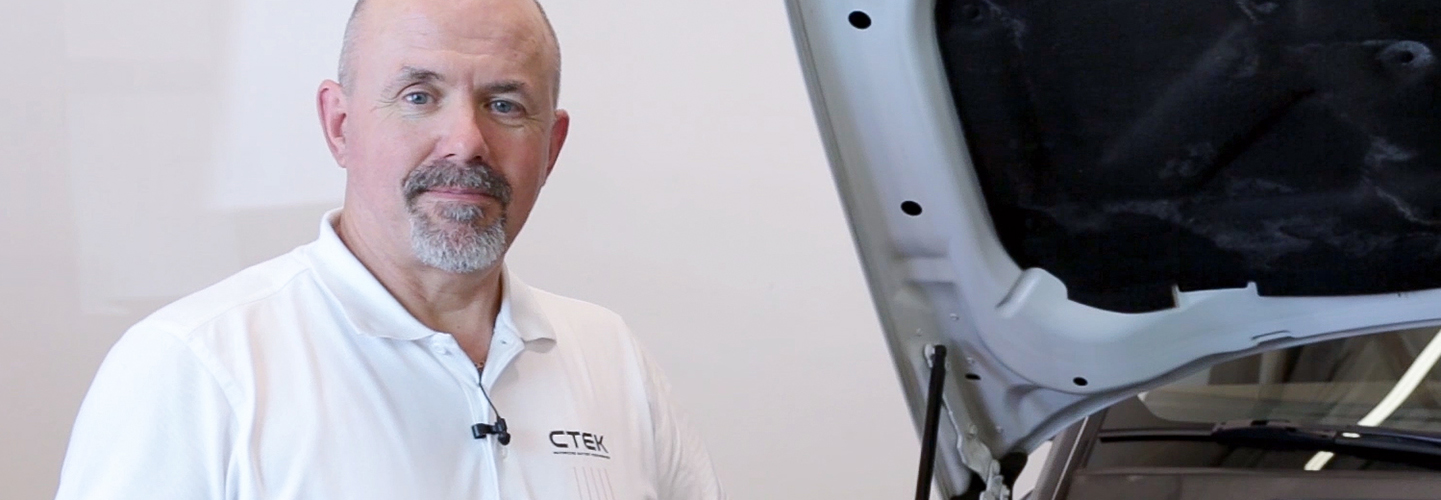CTEK’s Training Manager answer frequently asked body shop questions
Did you know that around 75% of vehicles stored in a workshop have a battery that needs attention? By that we mean it needs charging, conditioning and in certain cases replacing. With modern vehicles relying on sophisticated and costly electronics, lead-acid batteries are being used under more challenging conditions than ever before. As a result, battery care has become a pressing issue, particularly as inadequate maintenance leads to a rapid decrease in battery life.
The high-power demands of modern vehicles, as well as the drain from devices like tracking systems and alarms, mean that a battery can become flat in a matter of days, which is not ideal for body shops. To avoid the problem of a flat battery when a car is left standing in the shop, we recommend charging and conditioning the battery as soon as it arrives to bring it up to maximum capacity. Additionally, it's essential to regularly check the battery's state of charge.
In the following interview, Tony Zeal, SKILLBASE training manager at CTEK, will answer some of the most frequently asked battery-related questions. Just in time for Charge Your Car Day next week!
Why is the battery usually in a bad way when we get the vehicle in, especially if it’s on a truck?
It could be the amount of time the vehicle has been off the road, it could be lack of regular battery maintenance – did you know that a battery can discharge by 0.1V per month and possibly even more if the vehicle is left outside in cold weather.
Isn’t it dangerous to charge in the workshop/ in a vehicle?
Not if you use the right type of charger. The advanced electronics of CTEK mean it is completely safe for the user and the vehicle – it is spark proof and reverse polarity protected and the complete charge control guards against gassing. There is no need to disconnect the battery to charge it.
Why would it be that when we send a vehicle home with a customer the battery would fail a few days later?
Bear in mind that the vehicle has probably been sitting waiting for the go-ahead from the insurance company. Then it has been sitting in the body shop whilst repair work has been undertaken – that’s a lot of idle time where the battery isn’t receiving a charge. It’s not good for a heavily discharged battery to be brought back to a serviceable level by the alternator, which is why after one or two days of driving around, the battery that left the body shop in an already poor state of charge will finally give up the ghost! We would recommend an overnight charge and condition – all CTEK chargers are fully automatic, easy to use and require no specialist knowledge or monitoring - simply connect and forget – or in terms of an overnight charge simply connect and go home, there is no risk of overcharging the battery.
Are there any revenue opportunities?
Battery charging and maintenance can actually become a new revenue opportunity. By utilising CTEK’s unique technology, workshops can now offer a battery charging and conditioning service to their customers – easily, safely and without disruption to usual body shop routines, increase customer satisfaction, body shop revenue and profitability. To make the most of this opportunity body shops would need to be equipped with an up-to-date battery analyser, ideally incorporating a printer facility.
Complemented by a CTEK charger and its patented 8-step cycle, workshops can automatically charge and condition a vehicle’s battery to ensure it is at full capacity while connected to the vehicle - identified problems will be dealt with by the charger or be brought to the attention of the body shop technician.

